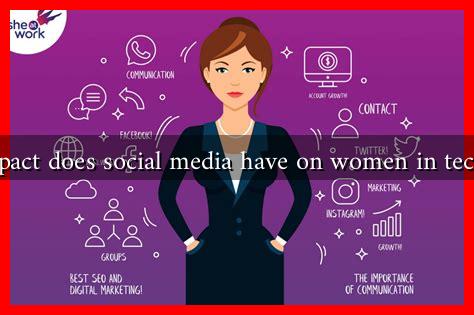-
Table of Contents
What Impact Does Social Media Have on Women in Technology?
In recent years, social media has emerged as a powerful tool that shapes various aspects of our lives, including professional landscapes. For women in technology, social media can serve as both a platform for empowerment and a source of challenges. This article explores the multifaceted impact of social media on women in tech, highlighting both the positive and negative aspects, supported by relevant examples and statistics.
The Positive Impact of Social Media on Women in Technology
Social media platforms like LinkedIn, Twitter, and Facebook have become essential for networking, sharing knowledge, and building personal brands. Here are some of the positive impacts:
- Networking Opportunities: Social media allows women in tech to connect with industry leaders, mentors, and peers. For instance, the #WomenInTech hashtag on Twitter has fostered a community where women can share experiences and advice.
- Visibility and Representation: Platforms like Instagram and TikTok have enabled women to showcase their work and achievements, increasing visibility in a male-dominated field. Initiatives like “Women Who Code” use social media to highlight female role models in tech.
- Access to Resources: Social media serves as a hub for sharing educational resources, webinars, and workshops. Women can easily find online courses and tutorials that enhance their skills.
- Supportive Communities: Online groups and forums provide a safe space for women to discuss challenges and seek advice. For example, Facebook groups dedicated to women in tech offer support and encouragement.
Challenges Faced by Women in Technology on Social Media
Despite the benefits, social media also presents significant challenges for women in technology. These challenges can hinder their professional growth and mental well-being:
- Online Harassment: Women in tech often face cyberbullying and harassment on social media platforms. A study by the Pew Research Center found that 40% of women have experienced online harassment, which can deter them from participating in discussions.
- Imposter Syndrome: The constant comparison to others on social media can exacerbate feelings of inadequacy. Many women report experiencing imposter syndrome, which can affect their confidence and career progression.
- Gender Bias: Women often encounter gender bias in tech discussions online. This can manifest in dismissive comments or a lack of recognition for their contributions, further perpetuating the gender gap in the industry.
- Information Overload: The vast amount of information available can be overwhelming. Women may struggle to discern valuable resources from noise, leading to confusion and frustration.
Case Studies and Statistics
Several case studies illustrate the impact of social media on women in technology:
- Women Who Code: This global nonprofit organization has leveraged social media to create a community of over 230,000 members. Their online presence has helped women find job opportunities and mentorship.
- Girls Who Code: Through social media campaigns, this organization has reached millions of girls, encouraging them to pursue careers in technology. Their #GirlsWhoCode hashtag has gained significant traction, promoting awareness and engagement.
- Statistics: According to a report by McKinsey, women make up only 28% of the workforce in tech. However, organizations that actively promote women through social media initiatives see a 15% increase in female representation.
Conclusion
Social media has a profound impact on women in technology, offering both opportunities and challenges. While it provides a platform for networking, visibility, and support, it also exposes women to harassment, bias, and information overload. To harness the positive aspects of social media, women in tech must navigate these challenges strategically. By fostering supportive communities and advocating for equitable representation, the tech industry can create a more inclusive environment for women. As we move forward, it is crucial to recognize the dual nature of social media and work towards maximizing its benefits while mitigating its drawbacks.
For further reading on the impact of social media on women in technology, you can explore resources from Women Who Code and Girls Who Code.

